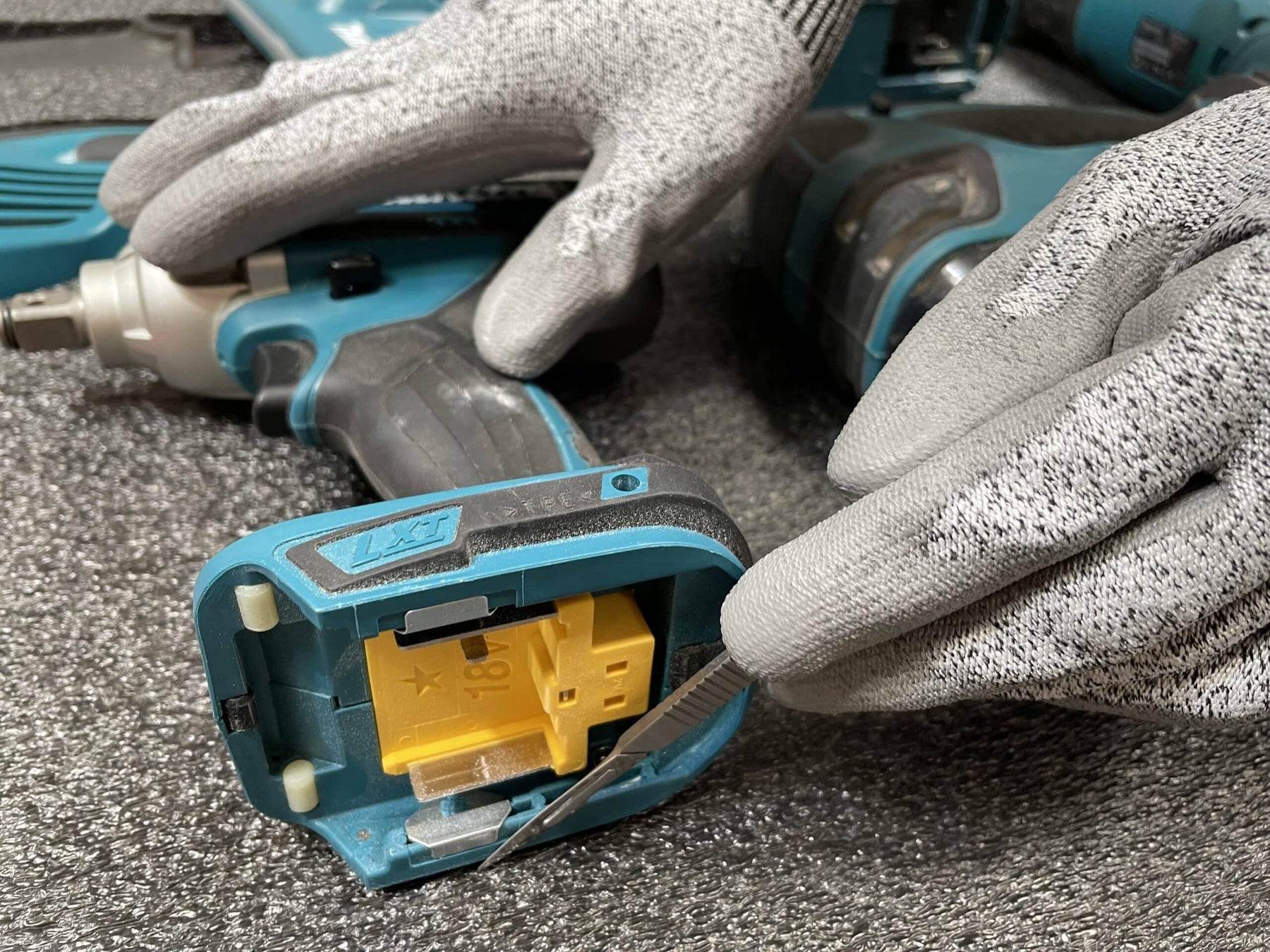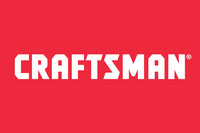Clôture quotidienne des commandes à 14h

Un guide pour Shadowfoaming
Nous voulions compiler une liste des meilleurs conseils et astuces que nous pouvons offrir pour obtenir des résultats optimaux lors de l'utilisation de Shadow Foam. Le shadowfoaming est un processus relativement simple, mais il y a des conseils précis que vous pouvez utiliser pour obtenir la meilleure finition de votre travail, nous espérons que ce guide vous aidera.
Quelle profondeur de mousse ?

La profondeur de mousse dépend de plusieurs facteurs... de ce qu'est votre conteneur et de ce que vous y stockez. Comme vous le savez, nous offrons 3 profondeurs de mousse, 30 mm, 50 mm et 70 mm. Généralement pour des outils plus petits et plus légers, outils à main etc la profondeur de 30 mm est parfaitement adéquate. Mais si vous avez des articles plus grands et plus lourds, vous voudrez peut-être envisager quelque chose de plus profond. De plus, il est possible de superposez la mousse si vous en avez besoin pour stocker quelque chose de particulièrement grand.

règle générale, vous devez essayer de garder une base d'environ 10 mm au fond de la mousse. Donc, pour la mousse de 30 mm, vous pouvez couper à 20 mm, 50 mm à 40 mm. Et pour la mousse de 70 mm, vous pouvez couper à environ 60 mm. Alors, regardez ce que vous stockez dans la mousse et vous pourrez décider de la profondeur de mousse dont vous avez besoin à partir de là.
Essayez avant d'acheter
Si vous n'avez jamais vu ou utilisé notre organisateurs de boîte à outils avant, nous vous recommandons vraiment d'essayer d'abord. Vous pouvez commander un échantillon pack, la plupart du temps, il sera avec vous le lendemain. Cela coûte 5 £ (y compris la livraison gratuite au Royaume-Uni), et vous obtenez même un bon de 5 £ à utiliser sur votre première commande, donc cela ne doit rien vous coûter.
Planification
Nous disons toujours que cela devrait être l'une des parties les plus longues du processus lors de la création de Shadowfoam. Prenez le temps de réfléchir à la meilleure disposition pour vous. C'est vous qui l'utilisez, donc cela doit être adapté à vos besoins. Bien sûr, vous voulez que cela ait fière allure et l'esthétique est importante. Mais pensez aussi aux articles auxquels vous avez besoin d'un accès plus régulier.
D'autres facteurs à considérer sont l'économie d'espace si vous avez beaucoup de matériel... peut-être avez-vous des articles que vous souhaitez superposer ? Ou inversement, la préparation pour l'avenir si vous pensez que vous pourriez ajouter des outils ou des équipements supplémentaires à l'avenir.

Une fois que vous avez une mise en page qui vous satisfait... prenez une photo avant de commencer à couper... de cette façon, vous n'oublierez pas comment vous la vouliez en travaillant dessus.
Équipement
S'il vous plaît, s'il vous plaît, nous ne pouvons pas insister assez. Lorsque vous travaillez avec des lames pour produire votre rangement, comme vous devez le faire ici, veuillez le faire en toute sécurité. Nous avons toute une gamme de produits conçus pour vous aider à travailler avec précision et en toute sécurité, et elle a été spécialement élaborée en tenant compte de Shadowfoaming, alors pensez à vérifier si vous avez tout ce dont vous avez besoin, et si ce n'est pas le cas, alors donnez notre Extras magasin une visite.
tant que minimum absolu, vous avez besoin de gants de coupe solides - vous pouvez les trouver dans notre kits de découpe complets. Ensuite, quelque chose pour couper la mousse. Maintenant, nous savons que les gens ont toutes sortes de grands couteaux tranchants, mais nous recommandons d'utiliser un scalpel là où cela est possible pour vous permettre d'obtenir une coupe de profil vraiment ajustée contre les articles sans aucune distorsion due à des poignées plus épaisses. Vous pouvez les obtenir dans nos packs de découpe de base, nos kits de découpe complets et vous pouvez même obtenir des lames supplémentaires si vous en avez besoin. Un ajout soigné à votre kit est notre Colle Élastique Fantastique. Si vous êtes nouveau dans le Shadowfoaming, alors c'est un incontournable car toutes les réparations peuvent être effectuées proprement et de manière à vous permettre de continuer à travailler avec la mousse.

Mais pour tout ce dont vous pourriez avoir besoin, des tapis de découpe aux jauges de rayon, cela vaut vraiment le détour vers le Extras section avant de finaliser votre commande avec votre mousse pour voir ce qui pourrait être utile.
L'ajustement
Si vous avez acheté l'un de nos inserts sur mesure, vous êtes sur la bonne voie et pouvez passer cette partie !
Mais si vous voulez créer votre propre insert pour n'importe quel conteneur, sac, tiroir, ou à peu près n'importe quoi, nous pouvons vous aider. Vous pouvez, bien sûr, commander Shadow Foam dans n'importe quelle taille jusqu'à 2m x 1m en utilisant notre Taille personnalisée service, donc si vous avez un tiroir carré, cela vous conviendra parfaitement.
Mais que faire si vous avez un conteneur de forme étrange à adapter, ou des rayons aux coins, ou si vous souhaitez acheter un moyen feuille de Shadow Foam ou un Pack de valeur et coupez-le pour l'adapter à vous ? Nous avons un guide pour cela !

Il est tout à fait possible de créer un insert en mousse sur mesure pour s'adapter à n'importe quel conteneur – regardez ici pour plus de détails sur la façon de faire cela. Ce n'est pas technique, ni sophistiqué mais c'est quelque chose que tout le monde pourrait faire, juste en utilisant des matériaux que vous aurez chez vous. Et c'est super efficace !
Une note spéciale… temps et patience
Lorsque vous regardez l'un de nos Vidéos YouTube vous verrez à quelle vitesse nous avançons dans nos projets. Nous disons souvent des choses comme "cela nous a pris moins de quelques heures" et tout cela est vrai. Mais nous faisons cela tout le temps! Nous avons les techniques et les processus bien en tête et nous pourrions presque le faire dans notre sommeil. Mais si vous êtes nouveau dans le shadowfoaming, il vaut la peine de prendre un peu plus de temps au début pour obtenir les meilleurs résultats. La rapidité et la facilité viendront absolument avec le temps, mais comme pour tout, il faut un peu de temps pour s'y habituer au départ.
Mais ce n'est vraiment pas difficile, n'importe qui peut le faire, presque n'importe où car cet exemple illustre.
Nous connaissons tous le vieux dicton : « mesurez deux fois, coupez une fois » et il en va de même ici. Avec de la patience et une approche méthodique en suivant nos meilleures pratiques et tutoriels, vous aussi, vous organiserez vos outils en un rien de temps.
Découpe
Ce n'est pas un hasard si nous couvrons les meilleures et les plus sûres techniques pour couper la mousse dans la plupart de nos Vidéos YouTube. C'est une partie vraiment importante du processus. Si vous n'avez jamais travaillé avec Shadow Foam auparavant, jetez-y un coup d'œil Guide d'utilisation trop.

- Maintenez l'article en place avec une main.
- Avec l'autre main, tenez le scalpel comme un crayon et tracez une coupe tout autour de l'objet.
(c'est-à-dire ne pas couper complètement, juste assez pour que vous puissiez voir la silhouette de l'article) - Retirez l'article et revenez sur votre coupe de trace, en coupant jusqu'à la profondeur requise dans la mousse
(vous pouvez utiliser la longueur de la lame comme référence visuelle pour cette profondeur, et lorsque vous commencez à peler, vous pouvez également utiliser les couches que vous verrez à l'intérieur de la mousse comme guide aussi) - Il est important que vous ayez coupé suffisamment profondément pour que la base de l'article soit à la bonne hauteur, alors assurez-vous que la pointe de votre lame atteigne aussi loin, voire un peu plus loin, que l'endroit où vous souhaitez que la base soit.
(bien que vous puissiez toujours revenir en arrière et couper après avoir enlevé une couche ou deux, pour être sûr)
Pelage
Maintenant, cela est absolument essentiel pour la réussite de votre projet, l'apparence du résultat et la facilité avec laquelle vous trouvez le processus. Cette technique vous fera passer de novice à expert en un rien de temps et nous recommandons vraiment à tout le monde de se rafraîchir la mémoire sur ce processus avant de commencer le shadowfoaming !

- Enfoncez votre doigt (ou vos doigts) dans la mousse à une extrémité du profil de l'article découpé
- Continuez à enfoncer votre doigt (ou vos doigts) dans la mousse jusqu'à ce que vous entendiez le bruit de séparation là où vous poussez vos doigts.
(ne soyez pas tenté de tenir et de peler comme si vous peliez une banane comme sur la photo, cela se cassera juste et vous devrez recommencer. Cela demande un peu de force et d'effort et c'est intentionnel afin que la mousse soit suffisamment solide pour ne pas se désagréger avec le temps) - Vous voudrez peut-être enlever les couches petit à petit, c'est bien, une fois que vous avez enlevé une couche, revenez en arrière et faites de même à nouveau.
- Les points de couche laminée de 10 mm que vous pouvez voir dans la mousse peuvent être les points les plus difficiles à décoller, donc pour de meilleurs résultats, essayez de décoller à n'importe lequel des autres points au-dessus et en dessous de ceux-ci.
Finitions
Ajustement de test
Lorsque vous positionnez votre outil dans la mousse, il doit s'ajuster parfaitement. Mais s'il nécessite un peu de découpe supplémentaire autour ou dans la mousse pour bien s'asseoir ou être à plat, c'est le bon moment pour y retourner. Certains articles ayant des bases inégales nécessitent un peu plus de découpe dans certaines zones que dans d'autres.
Aplatir la base
On nous demande souvent comment obtenir une base plus plate sur votre zone découpée. Cela dépend en partie de l'utilisation de la meilleure technique d'épluchage comme nous le recommandons ci-dessus. Mais bien sûr, c'est de la mousse, et le matériau est par nature bosselé. Donc, ne vous inquiétez pas trop si la base de votre zone épluchée n'est pas totalement plate.
Mais si, comme nous, vous êtes des perfectionnistes, il existe des moyens d'obtenir un résultat aussi plat que possible. Lors de la découpe à la main, cela peut être fait en revenant sur les "bosses", en les rasant avec la lame de votre scalpel positionnée à l'horizontale par rapport à elles et en les soulevant simplement.
Cependant, nous avons maintenant toute une gamme de outils de lissage en mousse et des techniques que nous pouvons partager avec vous, alors consultez les options de lissage ici!
Personnalisation
Vous avez peut-être remarqué que nous intégrons souvent notre logo dans nos créations, mais beaucoup d'autres personnes ont pu faire de même en ajoutant des marques, des logos, des noms ou des initiales à leurs organisateurs en mousse. Comme vous le verrez dans cette sélection ci-dessous, cela peut avoir un effet très efficace.
Tout le découpage de mousse que nous faisons est fait à la main, et ceux-ci ont également été créés de la même manière, vous pouvez donc vraiment obtenir d'excellents résultats. Ici vous pouvez nous voir personnaliser l'un de nos propres murs d'outils afin que vous puissiez reproduire et essayer la même chose.

Contactez-nous
Nous espérons que ce guide et tous les liens vidéo vous aideront dans votre mission d'atteindre la perfection organisée ! Mais s'il y a autre chose avec laquelle nous pouvons vous aider, comme toujours, n'hésitez pas à contactez-nous.



















 Kit de découpe gratuit sur les commandes qualifiées
Kit de découpe gratuit sur les commandes qualifiées
 Plus de 3 000 avis positifs
Plus de 3 000 avis positifs
 Plus de 500 vidéos sur YouTube
Plus de 500 vidéos sur YouTube
 Soutien basé au Royaume-Uni
Soutien basé au Royaume-Uni